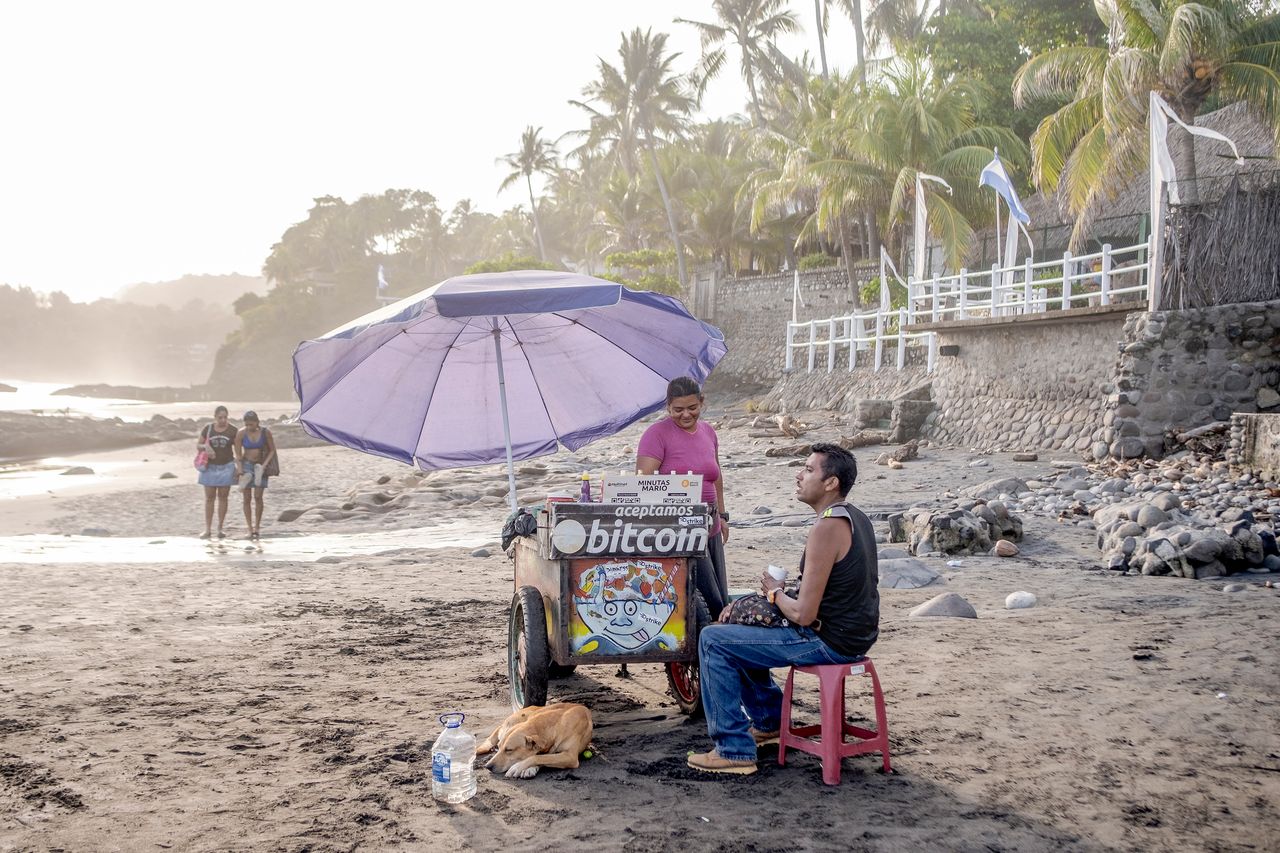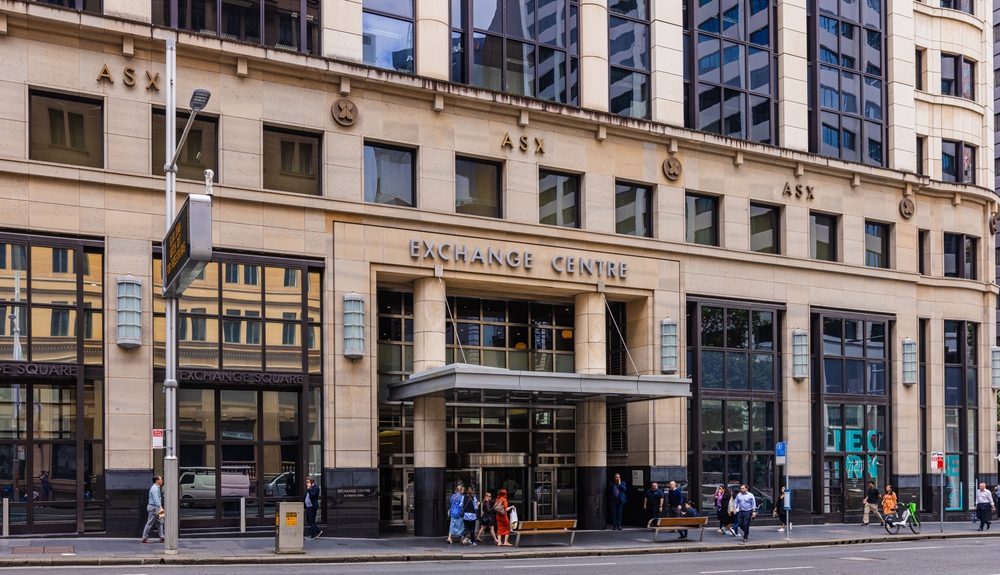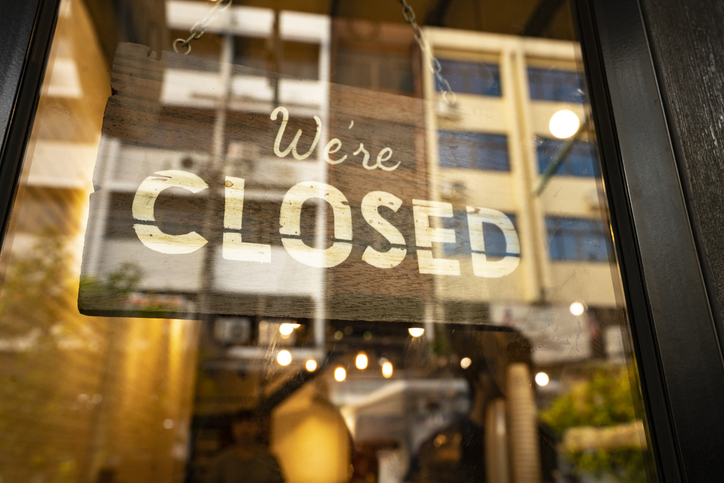El Salvador’s Lonely Bitcoin Experiment
‘It’s either the biggest failure or the biggest con.’
For those who believe in Bitcoin, El Salvador looks like a crypto paradise. It’s one of the few places in the world where you can use Bitcoin to buy a Coke or cerveza on the beach. In theory, you can pay rent in Bitcoin, buy a house, pay off a credit card, or send a payment to a Mayan pottery vendor in the local market.
Yet El Salvador is far from a crypto lover’s dream. Instead, it has turned into a cautionary tale of what happens when a country adopts a cryptocurrency, tries to weave it into its economy, and rebrands itself as a tech-friendly haven: It isn’t working as advertised.
Barron’s visited El Salvador to gauge Bitcoin’s impact a year after the country passed a law that established the crypto as a legal currency. El Salvador made history when its 41-year-old president, Nayib Bukele, signed the Bitcoin Law last September, becoming the first country to fully legalize the crypto for domestic use. Banks, businesses, and merchants of all sizes have since been required to accept it, alongside the country’s other official currency, the U.S. dollar.
By almost all measures, Bitcoin appears to be doing more harm than good. The government has ploughed scarce resources into the crypto and related projects, its fiscal health has deteriorated as Bitcoin crashed, and hardly anyone uses it outside a few pockets in the capital and crypto-friendly beach spot.
“The Bitcoin experiment is working as well as one might have expected—which is not too well,” says economist Eswar Prasad, professor of trade policy at Cornell University.
The crypto collapse hasn’t helped. Losing more than 70% since last November, Bitcoin has shed about $1.5 trillion in value, wiping out many investors and fueling a selloff in the broader crypto market. Along the way, it has drawn the wrath of governments, notably China, that have come to view it as a subversive threat to their monetary control and a profligate consumer of electricity due to the steep energy toll of crypto “mining.”
In El Salvador, the crypto still has its boosters, notably Bukele, a Twitter-loving millennial who heralded it as an economic saviour. “We must break with the paradigms of the past,” he said when announcing the Bitcoin Law. “El Salvador has the right to move toward the first world.”
One year later, critics say, Bitcoin has been little more than a distraction from deep-seated economic problems and a mechanism for Bukele’s increasingly authoritarian rule. Indeed, it has been a divisive force, causing street protests and fear of reprisals to anyone who criticizes it—including residents of a fishing village who may be forcibly relocated by a government-backed “Bitcoin City.”
“It’s either the biggest failure or the biggest con,” said Claudia Ortiz, an opposition member of congress in El Salvador and one of the dwindling opponents of Bukele.
Bitcoin’s Bad Timing
On a macro level, the country’s embrace of Bitcoin has taken a toll. Bukele inherited a highly indebted nation when he won the presidency in 2019. The situation worsened as the pandemic hit and the government ramped up spending. Debt grew from 71% of gross domestic product in 2020 to 85% at the end of 2021.
As the debt load rose, Bukele started buying Bitcoin and legalized the crypto, complicating the country’s financial profile with creditors and pushing up its sovereign bond yields. A lack of hard currency is now raising alarms over two $800 million government bonds, maturing in January 2023 and 2025. The country had raised only $560 million to repay bondholders as of July, according to finance minister Alejandro Zelaya, who acknowledged that repaying the entire debt would be “almost impossible.”
The 2023 bond trades at 90 cents on the dollar with a 37% yield to maturity. The 2025 bond trades at 51 cents, yielding 39%. Both reflect market skepticism about the country’s debt profile and make it prohibitively expensive to issue more bonds.
Former government officials see more fiscal trouble ahead. “With international markets closed, I don’t see how it’s possible for the country to pay upcoming bonds with the resources of the domestic market,” says Carlos Acevedo, a former president of El Salvador’s Central Bank and now an independent consultant and economist.
Confidence in Bukele spending the government’s revenue wisely is also being undermined by his crypto plans. They have included doling out at least $250 million on “digital infrastructure,” according to estimates from opposition leaders. Those funds have gone to things like a government-backed digital wallet—distributed to adult citizens and preloaded with a $30 bonus in Bitcoin. The money also went to setting up more than 200 Bitcoin ATMs, and a $150 million “Bitcoin trust” to ensure convertibility between the crypto and the dollar.
Bukele widened the fiscal hole. While the government refuses to disclose its Bitcoin holdings or spending, Bukele’s tweets indicate that he bought 2,381 Bitcoins for the treasury, costing about $107 million. As prices slid, Bukele repeatedly tweeted that he “bought the dip.” The strategy appears to have lost tens of millions of dollars, based on falling prices for the crypto and Bukele’s tweets.
That isn’t fatal for a country with an $8 billion annual budget. But it has rankled opponents. “This is like gambling with the public money of a poor and indebted country,” said Ortiz. “A country that needs those resources now can’t afford to wait for them to gain value in an undetermined amount of time,” she said at her office, a small space tucked away in the congressional building, grouped with other Bukele opponents.
Turning El Salvador into a Bitcoin ATM has also rattled lenders like the International Monetary Fund. The government applied for a loan package from the IMF in 2020 and was negotiating a $1.3 billion agreement when Bukele signed the Bitcoin Law. Talks have broken down, partly due to the IMF’s concerns about the crypto’s destabilizing effect. “A program with the IMF would have to address all major economic vulnerabilities,” the fund said in a statement to Barron’s. “These include those related to the adoption of Bitcoin as legal tender.”
Bukele appears intent on turning the country into a global hub for Bitcoiners—from miners to crypto tourists. This past November—when the crypto was trading at peak prices around $68,000—he unveiled plans to issue Bitcoin-backed bonds, designed to fund the construction of an oceanside “Bitcoin City” nestled at the base of the Conchagua volcano. The city will be a tax haven for crypto investors, free of income, property, and procurement taxes, Bukele said. The country also aims to lure crypto miners—who use huge amounts of electricity to process transactions—by generating geothermal electricity from the volcano.
Yet the bonds, scheduled to be issued this past March, have been postponed. The country is doing some crypto mining—partially powered by geothermal energy from a pre-existing plant. But development of a volcano-powered Bitcoin City is nowhere in sight in the tropical forest. The volcano isn’t even a viable geothermal reservoir, says Carlos Martinez, an electrical engineer who works at the University of El Salvador.
Bukele’s promise of using Bitcoin to bank the unbanked and catapult the country into the digital era remains unfulfilled. Beyond a few pockets on the coast, a tiny sliver of people are using crypto—no surprise, perhaps, in a country where even apps like PayPal’s Venmo service aren’t widespread. More than four million people downloaded the wallet, called Chivo—Salvadoran slang for cool. A $30 bonus preloaded in Bitcoin was no doubt enticing in a country where the minimum wage is $13 a day.
Yet only 20% of Salvadorans used the app after spending the bonus, according to one recent study. Nearly 92% of small and medium-size businesses said Bitcoin has been immaterial for them. “Bitcoin is absolutely irrelevant for the country,” says Luis Membreño, a Salvadoran economist and critic of the Bitcoin Law, who lives in exile out of fear of government persecution.
The country continues to grapple with gangs, poverty, and rising unemployment. If Bitcoin is having an impact, critics say, it’s within a parallel world of crypto-tourists, techies, and well-connected elites.
Bukele declined interview requests, and a government spokesperson declined to make any officials available for this article.
A Bitcoin Surfer’s Paradise
To see Bitcoin in action, it helps to hit the beach. Specifically, El Zonte, an area that has been nicknamed “Bitcoin Beach” by crypto enthusiasts because it’s one of the few places where the crypto is readily accepted.
There, you might meet Wilfredo Urias, a 28-year-old surfer who started his own surfing school, in part thanks to profits he made from trading Bitcoin. Urias bought his first $100 of Bitcoin in 2020, promptly turned it into $500 as prices soared and then continued to trade and profit, eventually making enough to buy 12 surfboards and hire instructors—some who want to get paid in the crypto. Bitcoin has been “very beneficial” for El Zonte, he said, as an ocean breeze ruffled his hair and surfers dotted the black sand beach.
Urias’ story isn’t representative of much of the country. Few merchants or stores that Barron’s encountered were equipped with the QR code readers necessary to process a transaction. Nor do they see much reason to go through the hassle.
“Tourists don’t shop; they just come to sight-see,” said a vendor in a local market, explaining why she didn’t take Bitcoin as a payment.
Some vendors say they lost sales because of hacks in the digital wallets. A beach vendor selling baskets in El Zonte said he had been locked out of his wallet due to a hacking alert and couldn’t access the funds or take more Bitcoin payments. “It’s better to keep using cash than virtual money,” he said. “I’m not getting into that again.”
Bitcoin complicates even 1980s technology, like using an ATM. Bitcoin ATMs convert a traditional currency into Bitcoin, stored in a digital wallet. But they are slow; it took six hours for a $20 Bitcoin deposit to show up in our Chivo wallet. A government subsidy covered the transaction fee, usually steep at a Bitcoin ATM. When we tried to buy snacks, however, the money was nearly useless; only three merchants out of 10 that we met would accept payment in Bitcoin.
There is some crypto development in the capital. Companies that have set up shop include Strike, Bitrefill, and Binance. At a weekly meetup of Bitcoiners in a swanky bar, attendees swapped ideas for apps and exchanged tips for obtaining residency permits, buying property, or investing.
“If you’re somebody who has Bitcoin and fiat money, you’re in these worlds that don’t mix. Here, the two worlds have merged,” said Dallas Rushing, a California-based app developer, visiting as a crypto tourist.
Bitcoin investors are interested in buying property, said William Velasco, co-founder of a real estate brokerage. “We’ve noticed an influx of foreigners from nationalities that we never thought would invest here,” he said.
Nonprofits, meanwhile, are trying to teach students to use crypto. A nonprofit called My First Bitcoin holds classes across the country. Bitcoin could propel the country into the digital economy, said Napoleón Osorio, an instructor who had just returned from a class on Bitcoin at a school in Apaneca, a rural town in the coffee-bean-growing highlands. But foisting the crypto on the population was akin to a “technological coup,” he added, and it will take much education, time, and technological investment to catch on.
Outside of crypto circles, Bitcoin has scant discernible impact. On a recent Friday in the town of Conchagua, where the future “Bitcoin City” is planned, street vendors were setting up shop, milling around, and swatting flies while waiting for the shopping crowd. Few could conjecture what the future city would look like. Even fewer were familiar with how to use Bitcoin.
Local officials aren’t sure what to make of “Bitcoin City.” Oscar Parada, the mayor of the neighbouring city of La Unión, said he doesn’t know when or where the development would start, adding that carving out the infrastructure would be a challenge. Parada, a member of Bukele’s New Ideas party, said he hasn’t been focused on Bitcoin. “Right now, I don’t think it’s necessary, but medium or long term, it will be,” he said.
One community feeling the impact is La Criba, a poor fishing village near the Conchagua volcano that has also been targeted for development of the “Bitcoin City.” More than 50 families live there, making a humble living through fishing and agriculture. Residents are under pressure to sell their land—often at a steep discount—as developers look to transform the region into a crypto destination.
“We live on standby,” said Hugo Guevara, 61, a resident and community leader of La Criba. Guevara gestures at the small, rundown cement houses with aluminium roofs nestled between the sand and lush mangrove trees. “We live like this because we can’t build anything better, out of fear that we’ll be evicted tomorrow.”
The Promise of Digital Money
One could argue that El Salvador was never a great proving ground for Bitcoin. Internet penetration is just 50%, and commerce is largely conducted in cash or credit cards backed by hard dollars.
Bitcoin might have a better shot in countries without a stable currency or financial system, where hyperinflation can be corrosive and people fear for access to their savings. El Salvador has none of that. It has used the dollar as official currency since 2001, posing steep hurdles to any rival, let alone something as baffling as Bitcoin—a 13-year-old set of software rules with no intrinsic value, existing solely as code on computers worldwide.
As for whether more countries follow in El Salvador’s path—the great hope of Bitcoin lovers—that is looking less likely. The Central African Republic made Bitcoin legal currency in April, but the country’s top court is putting up roadblocks to its use.
Opposition to Bitcoin from organizations such as the IMF, the World Bank, and international bond markets will likely deter other governments. Crypto also remains a conduit for money-laundering and evading government sanctions. And the environmental toll of mining—spewing out country-size carbon emissions each year—makes it controversial for any country, especially as other types of crypto have moved beyond Bitcoin’s energy-intensive system for processing transactions.
Even if Bitcoin were more stable, traceable, and eco-friendly, its technology wasn’t designed to scale up for an entire country. Its blockchain handles seven transactions per second, compared with 24,000 for Visa’s card network. An add-on “Lightning” network can process Bitcoin transactions faster, but that adds more complexity to the system, and it doesn’t address the high underlying fees and congestion on the original blockchain, where all transactions are recorded.
“There’s a cautionary tale here about the inability of Bitcoin to meet the needs of even a tiny country,” said David Yermack, a finance professor at New York University.
None of this should be viewed as an indictment of digital money or peer-to-peer transactions through apps. In Kenya, a mobile app allows people to deposit traditional currency on accounts stored on cellphones and transferred via text messages. For international remittances, or money transfers, a central bank digital currency, or CBDC, could cut fees compared with commercial services like Western Union. That would have big benefits in countries like El Salvador where a quarter of gross domestic product comes from remittances.
Indeed, the future of tokenized money is far more likely to be a CBDC or stablecoin—privately issued tokens backed, in most cases, by a hard currency like the dollar. China is well on its way to tokenizing its currency. In the Bahamas, the “sand dollar,” a digital version of its currency, can be loaded on a smartphone app and used at resorts or anywhere cash is taken. The U.S. is studying CBDCs, along with dozens of other countries.
Perhaps the best outcome of El Salvador’s Bitcoin experiment may be its failure. “If the law had been successful, Bitcoin’s drop would have been a catastrophe,” said Acevedo, the former central banker. “The Bitcoin Law’s failure has saved us.”
Reprinted by permission of Barron’s. Copyright 2021 Dow Jones & Company. Inc. All Rights Reserved Worldwide. Original date of publication: September 09, 2022.
This stylish family home combines a classic palette and finishes with a flexible floorplan
Just 55 minutes from Sydney, make this your creative getaway located in the majestic Hawkesbury region.
Continued stagflation and cost of living pressures are causing couples to think twice about starting a family, new data has revealed, with long term impacts expected
Australia is in the midst of a ‘baby recession’ with preliminary estimates showing the number of births in 2023 fell by more than four percent to the lowest level since 2006, according to KPMG. The consultancy firm says this reflects the impact of cost-of-living pressures on the feasibility of younger Australians starting a family.
KPMG estimates that 289,100 babies were born in 2023. This compares to 300,684 babies in 2022 and 309,996 in 2021, according to the Australian Bureau of Statistics (ABS). KPMG urban economist Terry Rawnsley said weak economic growth often leads to a reduced number of births. In 2023, ABS data shows gross domestic product (GDP) fell to 1.5 percent. Despite the population growing by 2.5 percent in 2023, GDP on a per capita basis went into negative territory, down one percent over the 12 months.
“Birth rates provide insight into long-term population growth as well as the current confidence of Australian families,” said Mr Rawnsley. “We haven’t seen such a sharp drop in births in Australia since the period of economic stagflation in the 1970s, which coincided with the initial widespread adoption of the contraceptive pill.”
Mr Rawnsley said many Australian couples delayed starting a family while the pandemic played out in 2020. The number of births fell from 305,832 in 2019 to 294,369 in 2020. Then in 2021, strong employment and vast amounts of stimulus money, along with high household savings due to lockdowns, gave couples better financial means to have a baby. This led to a rebound in births.
However, the re-opening of the global economy in 2022 led to soaring inflation. By the start of 2023, the Australian consumer price index (CPI) had risen to its highest level since 1990 at 7.8 percent per annum. By that stage, the Reserve Bank had already commenced an aggressive rate-hiking strategy to fight inflation and had raised the cash rate every month between May and December 2022.
Five more rate hikes during 2023 put further pressure on couples with mortgages and put the brakes on family formation. “This combination of the pandemic and rapid economic changes explains the spike and subsequent sharp decline in birth rates we have observed over the past four years,” Mr Rawnsley said.
The impact of high costs of living on couples’ decision to have a baby is highlighted in births data for the capital cities. KPMG estimates there were 60,860 births in Sydney in 2023, down 8.6 percent from 2019. There were 56,270 births in Melbourne, down 7.3 percent. In Perth, there were 25,020 births, down 6 percent, while in Brisbane there were 30,250 births, down 4.3 percent. Canberra was the only capital city where there was no fall in the number of births in 2023 compared to 2019.
“CPI growth in Canberra has been slightly subdued compared to that in other major cities, and the economic outlook has remained strong,” Mr Rawnsley said. “This means families have not been hurting as much as those in other capital cities, and in turn, we’ve seen a stabilisation of births in the ACT.”
This stylish family home combines a classic palette and finishes with a flexible floorplan
Just 55 minutes from Sydney, make this your creative getaway located in the majestic Hawkesbury region.


















